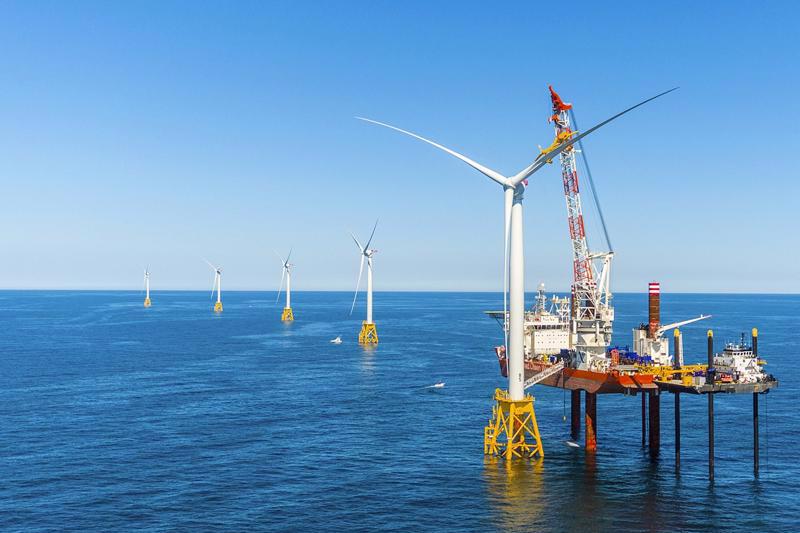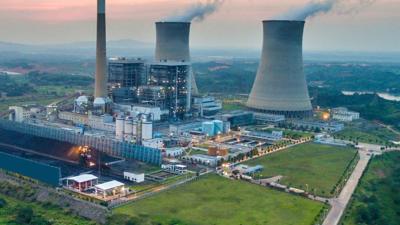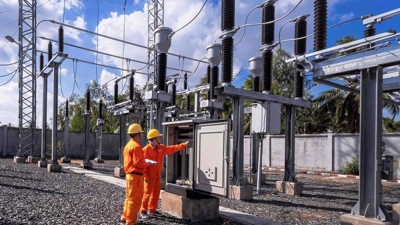Marine Spatial Planning helps unlock offshore wind power
Vietnam’s offshore wind power potential is estimated at around 165,000 MW, a recent workshop heard.

Marine Spatial Planning (MSP) is important in identifying feasible sites for offshore wind energy projects and in the growth of the blue economy, by catalyzing innovative technologies, responding to climate change impacts and fostering the energy transition, according to analysts.
At a workshop in Hanoi on April 20 entitled “Vietnam’s Marine Spatial Planning and Offshore Wind Energy”, organized by the Embassy of Norway in Vietnam and the United Nations Development Program (UNDP) in Vietnam, in cooperation with the National Assembly’s Committee on Science, Technology and Environment, domestic and international analysts discussed the next steps for MSP and offshore wind power development in Vietnam.
Analysts from Norway and the UK, among others, passed on valuable insights and recommendations on sustainable ocean planning, zoning, offshore wind energy, and assessments of and qualification criteria for sea areas for offshore wind.
Vietnam is at a relatively early stage in the process of formulating both its coastal zone planning and sustainable management of resources document and its MSP document.
“Developing renewable energy is a major policy for the Party, the National Assembly, and the Vietnamese Government, for whom offshore wind power has been identified as one of the breakthrough solutions for energy transformation and national energy security,” said Dr. Ta Dinh Thi, Deputy Chair of the National Assembly’s Committee on Science, Technology and Environment. “It is also closely related to MSP, especially for identifying potential marine areas and suitable zoning for offshore wind power development.”
Vietnam’s offshore wind power potential is estimated at around 165,000 MW, according to Dr. Thi.
“MSP is essential for unlocking the tremendous potential of offshore wind power development for Vietnam, contributing to the achievement of the Sustainable Development Goals and climate change commitments made at COP26, including achieving net-zero emissions by 2050,” said Ms. Ramla Khalidi, UNDP Resident Representative in Vietnam.
“MSP should be seen as a continuous process rather than a single fixed product. As such, we must not seek to develop a single, perfect, and all-encompassing document at this stage. It is essential that the development and approval of the Marine Spatial Plan, as well as the definition of sites for offshore wind power development, are done in an open, consultative, and inclusive process. The engagement of all stakeholders, especially local communities, will be important, to ensure the equitable sharing of benefits and the protection of vulnerable groups.”
The flagship publication “Blue Economy Scenarios for Vietnam”, a comprehensive report released by the UNDP and the Vietnam Administration of Seas and Islands (VASI) at the Ministry of Natural Resources and Environment in May 2022, examines the potential behind sustainably developing Vietnam’s marine economy. It concluded that if a blue scenario is applied, it is estimated that GDP in Vietnam’s marine economic sectors will be 34 per cent (or $23.5 billion) higher, and GNI per capita in these sectors will be almost 78 per cent (or $7,100) higher compared to the business-as-usual scenario in 2030.
“As a longstanding partner of Vietnam, we are proud to support this workshop,” said H.E. Hilde Solbakken, Ambassador of Norway to Vietnam. “Norway is committed to combating climate change and to develop a sustainable ocean economy. As a leading ocean nation with prominent marine industries, we see that emerging industries like offshore wind power have a vital role to play.”
“An effective approach to oceans management is and has been a very helpful tool for Norway,” she continued. “We believe a Marine Spatial Plan would ensure sustainable ocean management, which is essential for achieving our shared vision of a green, resilient, and prosperous future. By sharing and learning from each other we can ensure that all industries will benefit from the ocean while marine ecosystems and biological diversity are preserved. We are committed to working with our partners in Vietnam, including the UNDP and key ministries and authorities of Vietnam, to promote sustainable blue growth, protect the marine environment, and support the country’s energy transition.”
By providing a framework for decision-making and stakeholder engagement, MSP is expected to further ensure that renewable energy, and especially offshore wind power, is developed in a way that is socially and environmentally sustainable while also contributing to Vietnam’s rising energy needs.



![[Interactive]: Economic overview - April 2025](https://media.vneconomy.vn/400x225/images/upload/2025/05/06/5a245778-67b1-4874-a8dc-21f8cfed62a6.png)



